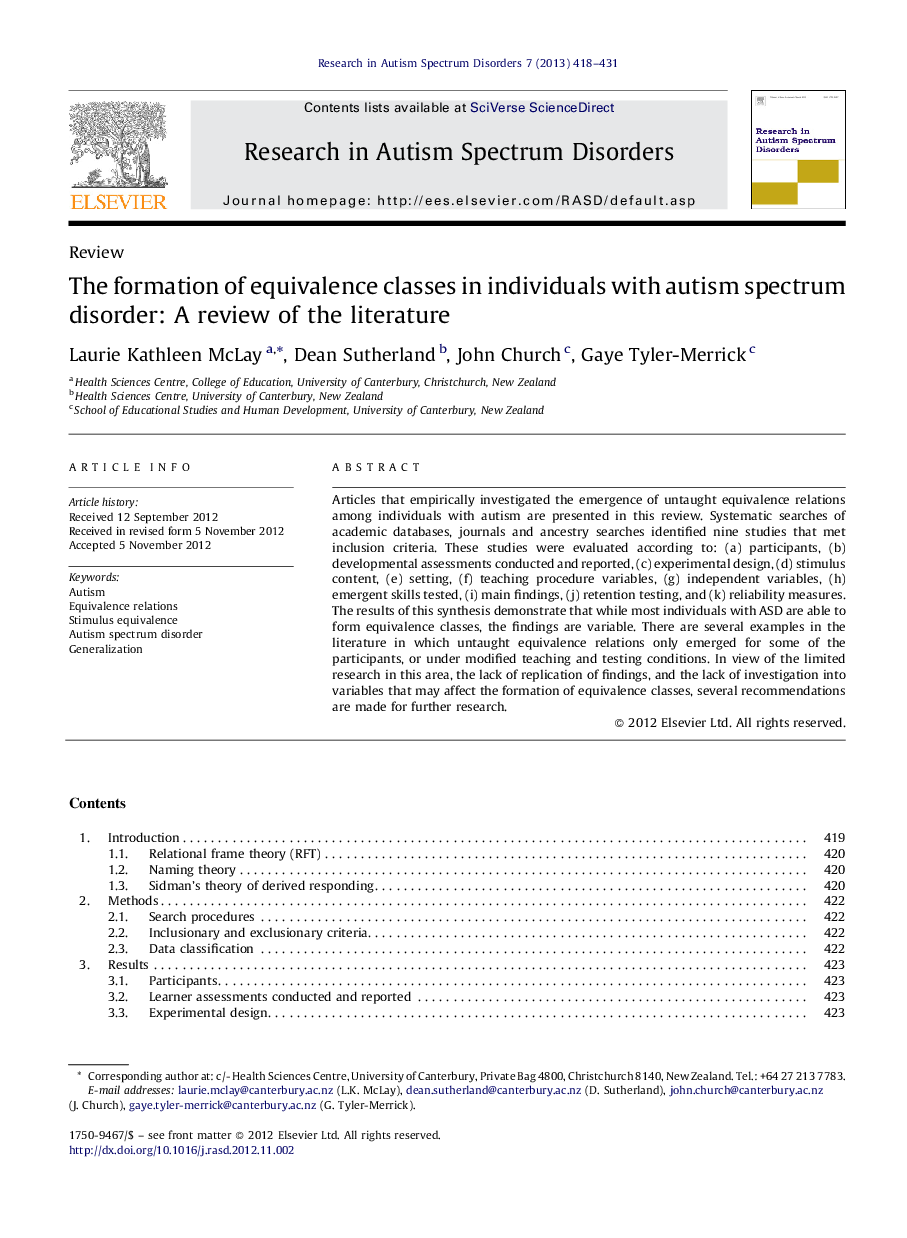| Article ID | Journal | Published Year | Pages | File Type |
|---|---|---|---|---|
| 370505 | Research in Autism Spectrum Disorders | 2013 | 14 Pages |
Articles that empirically investigated the emergence of untaught equivalence relations among individuals with autism are presented in this review. Systematic searches of academic databases, journals and ancestry searches identified nine studies that met inclusion criteria. These studies were evaluated according to: (a) participants, (b) developmental assessments conducted and reported, (c) experimental design, (d) stimulus content, (e) setting, (f) teaching procedure variables, (g) independent variables, (h) emergent skills tested, (i) main findings, (j) retention testing, and (k) reliability measures. The results of this synthesis demonstrate that while most individuals with ASD are able to form equivalence classes, the findings are variable. There are several examples in the literature in which untaught equivalence relations only emerged for some of the participants, or under modified teaching and testing conditions. In view of the limited research in this area, the lack of replication of findings, and the lack of investigation into variables that may affect the formation of equivalence classes, several recommendations are made for further research.
► Limited research into the formation of equivalence classes in individuals with ASD. ► Variation in the likelihood that individual's with ASD will form equivalence classes. ► Insufficient documentation in the literature to account for this variation. ► Further research is required to determine ways to facilitate derived responding. ► This has great implications for improving teaching efficiency.
